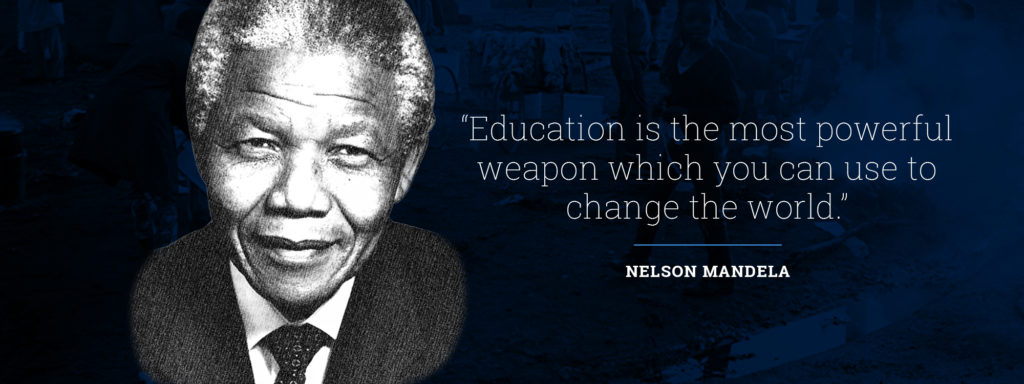
Black nationalist and statesman Nelson Mandela has leftan indelible mark not only in South Africa, but worldwide. He was born in Transkei, South Africa on July 18, 1918. Mandela started a bachelor’s degree at University College of Fort Hare, but was expelled, along with the late Oliver Tambo, for participating in a student strike. As a result, he completed his degree by correspondence from Johannesburg and completed his law degree at the University of the Witwatersrand.
In 1942, Mandela joined the African National Congress (ANC), becoming one of the founders of the Youth League and developing their Programme of Action. His activism increased during the early fifties, where he traveled the country organizing resistance to discriminatory legislation. He was arrested and given a suspended sentence for his involvement in the campaign and confined to Johannesburg for six months. Mandela and Tambo opened the first black legal firm in the country. Mandela became both Transvaal president of the ANC and deputy national president. In the late fifties, Mandela turned his attention to the Bantustan policy and passed laws and predicted a program of mass evictions, political persecutions, and police terror would ensue. Throughout the fifties, he was banned, arrested, and imprisoned.
In 1960 the ANC was banned after the Sharpeville massacre and Mandela, still on trial, was detained until 1961. While underground, he helped create the military wing of the ANC, Umkhonto We Sizwe (“Spear of the Nation”) to resist the practices of racial domination. A year later, in 1962, he was arrested for leaving the country illegally and incitement to strike. He conducted his own defense. He was convicted and jailed for five years, but while serving his sentence, he was charged with sabotage and sentenced to life imprisonment. Throughout his imprisonment, Mandela never compromised his political principles and became a symbol for resistance, struggle, and hope. During the seventies and eighties, he refused offers of freedom if he recognized Transkei and settled there and renounced violence.